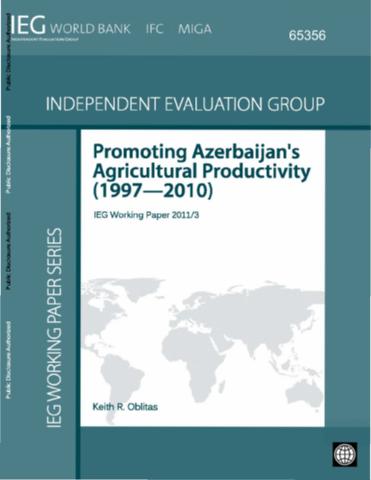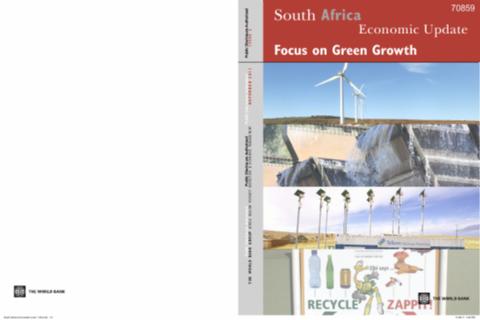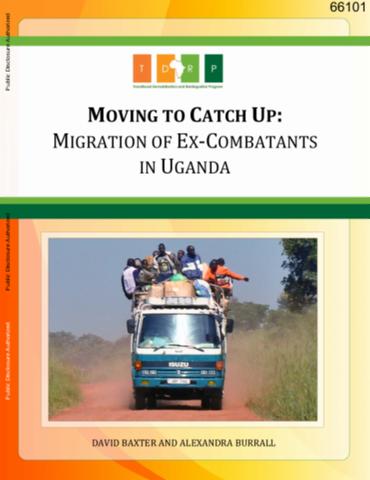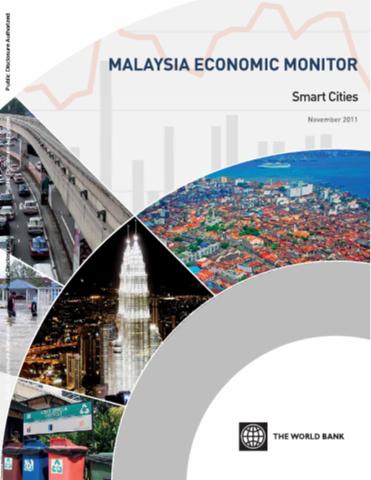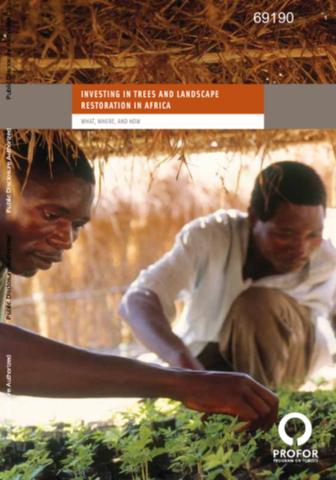The World Bank is a vital source of financial and technical assistance to developing countries around the world. We are not a bank in the ordinary sense but a unique partnership to reduce poverty and support development. The World Bank Group has two ambitious goals: End extreme poverty within a generation and boost shared prosperity.
- To end extreme poverty, the Bank's goal is to decrease the percentage of people living on less than $1.25 a day to no more than 3% by 2030.
- To promote shared prosperity, the goal is to promote income growth of the bottom 40% of the population in each country.
The World Bank Group comprises five institutions managed by their member countries.
The World Bank Group and Land: Working to protect the rights of existing land users and to help secure benefits for smallholder farmers
The World Bank (IBRD and IDA) interacts primarily with governments to increase agricultural productivity, strengthen land tenure policies and improve land governance. More than 90% of the World Bank’s agriculture portfolio focuses on the productivity and access to markets by small holder farmers. Ten percent of our projects focus on the governance of land tenure.
Similarly, investments by the International Finance Corporation (IFC), the World Bank Group’s private sector arm, including those in larger scale enterprises, overwhelmingly support smallholder farmers through improved access to finance, inputs and markets, and as direct suppliers. IFC invests in environmentally and socially sustainable private enterprises in all parts of the value chain (inputs such as irrigation and fertilizers, primary production, processing, transport and storage, traders, and risk management facilities including weather/crop insurance, warehouse financing, etc
For more information, visit the World Bank Group and land and food security (https://www.worldbank.org/en/topic/agriculture/brief/land-and-food-security1
Resources
Displaying 4561 - 4565 of 4906Promoting Azerbaijan's Agricultural Productivity (1997-2010)
The objective of this study is to evaluate the World Bank Group's (International Bank for Reconstruction and Development [IBRD], International Development Association [IDA], and International Finance Corporation [IFC]) effectiveness in promoting growth in agricultural productivity in Azerbaijan, and to derive lessons that may be relevant for the World Bank Group's future engagement in Azerbaijani agriculture.
South Africa Economic Update, November 2011
The global financial roller coaster, with the Euro zone as its lead car, has hit economic prospects across the globe. The South African economy, with its close links to the world economy, has suffered, too, resulting in weakened growth prospects, lower fiscal revenues, lower and more volatile valuation of the rand, and dampened external financing. This further compounds the policy challenges facing the authorities, on top of their preoccupation with unyielding unemployment, which requires higher and more inclusive economic growth.
Moving to Catch Up
The purpose of this study was to provide a better understanding for policy makers and service providers of mobility and migration among ex-combatants and the effectiveness of Disarmament, Demobilization and Reintegration (DDR) programming in Uganda. The study followed a scoping study on migration in Uganda conducted in March 2011 by the Transitional Demobilization and Reintegration Program (TDRP) of the World Bank.
Malaysia Economic Monitor, November 2011
The Malaysian economy decelerated as solid domestic demand was not sufficient to offset a weakening external environment. Private consumption growth continued at a healthy pace. Favorable rubber and palm oil prices drove up incomes of smallholders while continued employment and wage growth supported urban incomes. In contrast, fixed investment was more volatile, with private investment showing signs of picking up while public investments lagged.
Investing in Trees and Landscape Restoration in Africa
Reforestation measures for degraded lands, strategies for the sustainable management of forest resources, and agroforestry practices that incorporate trees into farming systems are increasingly demonstrating their promise for producing commercialized tree products. Although the level of investment so far has remained modest, the challenge is to find ways to scale up promising investments in a way that will have a clear impact at the landscape level.






